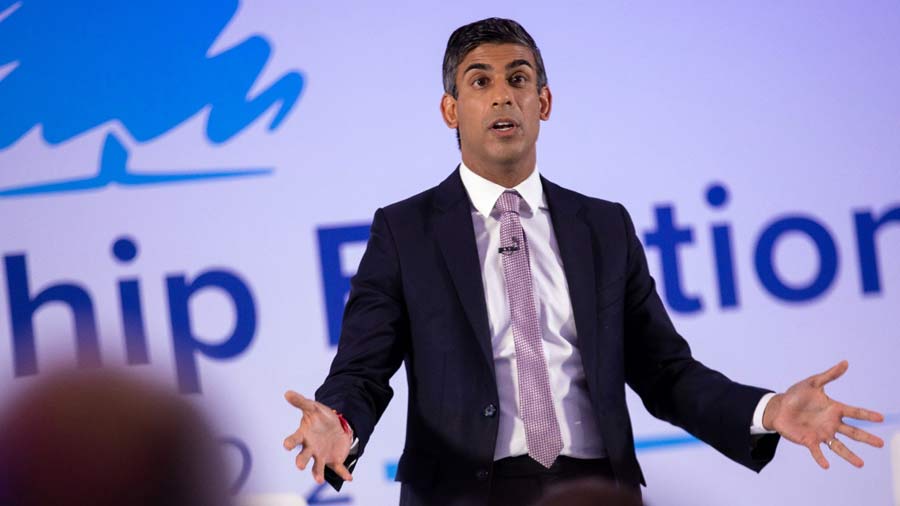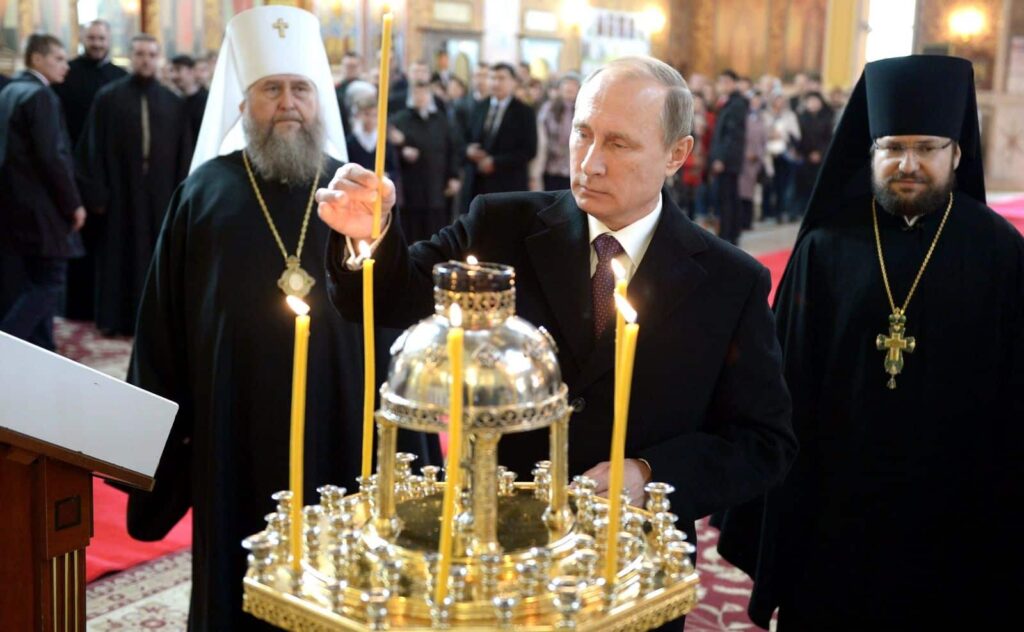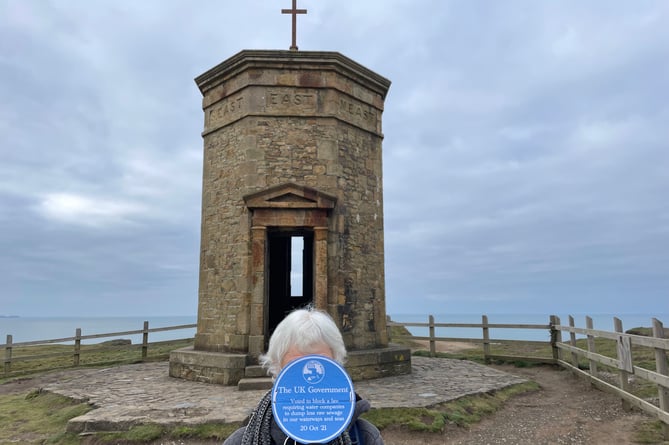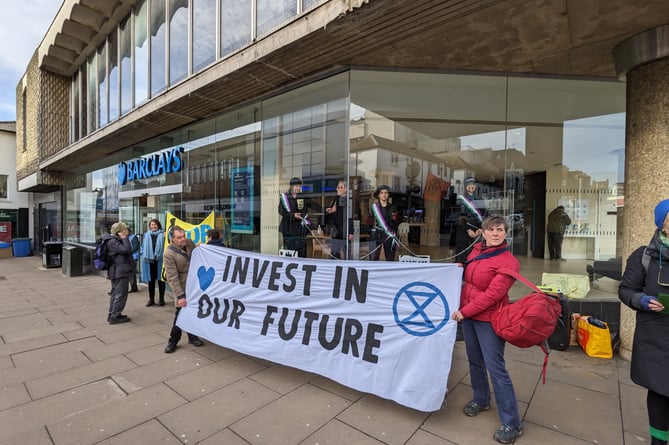The House GOP's vote to remove Rep. Ilhan Omar from the House Foreign Affairs Committee came hours after Israel launched its latest bombing campaign in the occupied Gaza Strip.
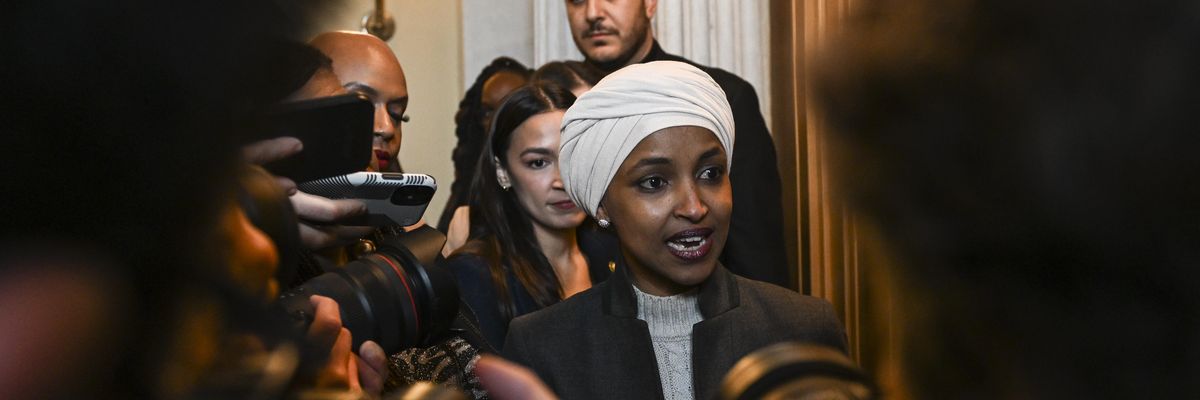
Rep. Ilhan Omar (D-Minn.) speaks to reporters on February 2, 2023 in Washington, D.C.
(Photo: Ricky Carioti/The Washington Post via Getty Images)
JAKE JOHNSON
Feb 03, 2023
Rep. Ilhan Omar vowed Thursday that the House GOP's vote to remove her from the chamber's foreign affairs panel would not stop her from criticizing Israel's treatment of Palestinians, a pledge that came after the Israeli government carried out its latest bombing campaign in the occupied Gaza Strip.
"My critique of our foreign policy, Israel's policy towards Palestinians, or that of any foreign nation will not change," Omar (D-Minn.) wrote in a Twitter post following passage of a Republican resolution forcing her off the House Foreign Affairs Committee—a seat she has used to speak out against human rights violations and demand accountability for war crimes, including those committed by the U.S. and Israel.
"As a person who suffered the horrors of war and persecution," Omar added, "my advocacy will always be for those that suffer because of the actions of governments."
The House vote was held hours after Israel's far-right government launched a series of airstrikes in the densely populated "open-air prison" of Gaza, bombings that came a week after Israeli forces killed 10 Palestinians at a refugee camp in the occupied West Bank. When two rockets were fired at Israel from Gaza in the wake of the massacre, Israel bombarded the enclave, reportedly hitting a refugee camp at the center of the strip.
During the floor debate ahead of the GOP resolution's passage, Republican lawmakers made clear that Omar's criticisms of Israeli policy—which are frequently conflated with antisemitism—were a driving force behind the effort to remove her from the House Foreign Affairs Committee.
Rep. Mike Lawler (R-N.Y.) specifically cited Omar's past characterization of Israel as an "apartheid" state, calling the description "appalling"—even though mainstream organizations, including Human Rights Watch and Amnesty International, have offered the same assessment of Israel's decades-long occupation and brutalization of Palestinians.
"Rep. Ilhan Omar was booted off of the House Foreign Affairs Committee today for one reason only: her firm and unequivocal opposition to Israel's brutal apartheid rule over the Palestinian people," wrote Josh Ruebner, an adjunct professor at Georgetown University and the former policy director of the U.S. Campaign for Palestinian Rights.
"All other pretexts," Ruebner argued, "are just designed to obscure this fact."
"Israel has long attempted to silence findings of apartheid with targeted smear campaigns, and the international community allows itself to be cowed by these tactics."
The House GOP passed its resolution kicking Omar off the powerful committee as rights groups warned that Israel is ramping up its assault on Palestinian rights and livelihoods.
“This circus is happening while the Israeli government is escalating an entirely new phase of state violence against Palestinians," Beth Miller, political director of Jewish Voice for Peace Action, told The Intercept's Akela Lacy, who argued Thursday that congressional Democrats "paved the way" for the GOP's attacks on Omar.
“If you actually look at what the Israeli government is doing right now," Miller said, "the mask is off completely."
Over the weekend, Israel moved to seal—and signaled plans to demolish—the West Bank homes of two Palestinians suspected of deadly attacks against Israelis. Human Rights Watch condemned Israel's response as an act of "collective punishment."
“Deliberate attacks on civilians are reprehensible crimes," Omar Shakir, Israel and Palestine director at Human Rights Watch, said in a statement Thursday. "But just as no grievance can justify the intentional targeting of civilians in Neve Yaakov, such attacks cannot justify Israeli authorities intentionally punishing the families of Palestinian suspects by demolishing their homes and throwing them out on the street."
Amnesty International noted earlier this week that Israeli forces killed 35 Palestinians in January alone. Last year was one of the deadliest in decades for Palestinians in the occupied territories.
"The devastating events of the past week have exposed yet again the deadly cost of the system of apartheid," said Agnès Callamard, Amnesty's secretary-general. "The international community's failure to hold Israeli authorities to account for apartheid and other crimes has given them free rein to segregate, control, and oppress Palestinians on a daily basis, and helps perpetuate deadly violence."
"Apartheid is a crime against humanity, and it is frankly chilling to see the perpetrators evade justice year after year," Callamard added. "Israel has long attempted to silence findings of apartheid with targeted smear campaigns, and the international community allows itself to be cowed by these tactics. Until apartheid is dismantled there is no hope of protecting civilian lives, and no hope of justice for grieving families in Palestine and Israel."
February 3, 2023
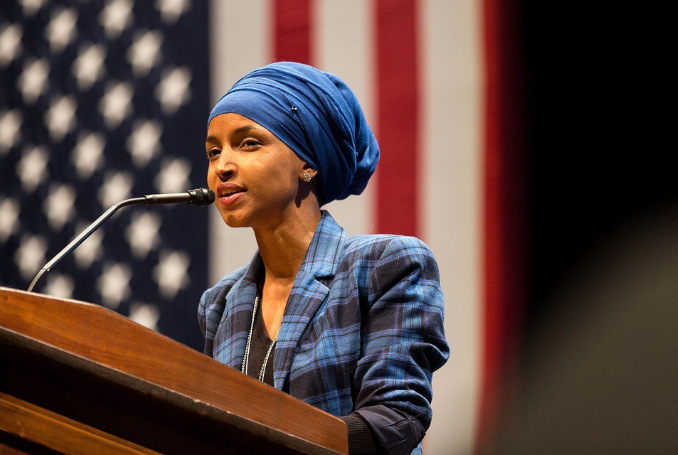
US Lawmaker Ilhan Omar. (Photo: Lorie Shaull, via Wikimedia Commons
By Palestine Chronicle Staff
Following days of intense debates and right-wing media rhetoric, Republicans have finally managed to oust Democrat Ilhan Omar from her committee post in Congress, on Thursday.
The vote in favor of the unusual move was championed by Republicans who now constitute a majority in the US House of Representatives.
Omar was removed from her post as a member of the House Foreign Affairs Committee, allegedly due to her strong position and previous comments on Israel.
Omar, along with a few other Democrats in Congress, has adopted a strong position against the illegal Israeli occupation of Palestine and has called on the US administration to hold Israel accountable for its actions.
Republicans, and even some Democrats, have protested such positions and comments as antisemitic.
Omar, and other Democrats, however, said that the vote was “revenge after two Republicans were ousted from committees in 2020 when Democrats held a House majority,” the BBC reported. It also conveyed comments by Omar where she suggested she was being removed because she is a Muslim woman who immigrated to the US as a refugee.
“Is anyone surprised that I am somehow deemed unworthy to speak about American foreign policy?” Omar reportedly said shortly before the vote.
At the vote, Congresswoman Alexandria Ocasio-Cortez bounced “on her feet with rage”, accusing the GOP leadership of having no greater motive than “targeting women of color in the United States”, the British Guardian reported.
“There is nothing consistent with the Republican party’s continued attack, except for the racism and incitement of violence against women of color in this body. This is about targeting women of color in the United States of America,” Ocasio-Cortez said.
Another Congresswoman, Cori Bush, called the action to kick Omar off the important committee, offensive. “Republicans are waging a blatantly Islamophobic and racist attack against Congresswoman Omar. I have said it before, I will say it again: The white supremacy happening is unbelievable. This is despicable,” Bush said.
(The Palestine Chronicle)
Tom Crann and Megan Burks
February 3, 2023

Minnesota Rep. Dean Phillips, who is Jewish, butt heads with Rep. Ilhan Omar over her past comments on Israel. But he defended her ahead of a vote this week to remove her from the House Foreign Affairs Committee.
Before the U.S. House voted along party lines to oust Rep. Ilhan Omar from the House Foreign Affairs Committee Thursday, several of her colleagues spoke out against the move, including Rep. Dean Phillips.
“She has never posted a video depicting herself decapitating and killing fellow members of Congress. She does not wonder if school shootings in America are staged. She has never equated vaccine mandates with Adolf Hitler. And she has never, ever expressed support for executing leaders of the United States Congress,” Phillips said, alluding to social media posts by some far right members of Congress.
They’ve since apologized for the posts, or tacit support of such posts by others. And so has Omar, who faced criticism — including from Phillips — for statements on Israel that many interpreted as anti-Semitic.
Phillips joined All Things Considered host Tom Crann Friday to talk about why he defended Omar this week.
As a a critic of the remarks then, what changed to have you support her so firmly yesterday?
To draw some comparison or false equivalency between Ilhan Omar and Marjorie Taylor Greene and Paul Gosar is a disservice to the Congress and to the country.
And as I said in my floor speech yesterday, I believe in the human capacity to learn from mistakes and to make amends, and that atonement should be rewarded not punished. Rep. Omar and I disagree regularly on policies, both domestic policy and foreign policy. She has made statements that have been hurtful, painful and we spoken about those. I do not believe that's grounds for removal from a standing committee in Congress.
In fact, as I also said on the floor, if there were more voices like Ilhan Omar's when my father went to Vietnam in 1969, I think that would have saved lives. And that's why I believe dissent is important, even if you disagree with the fundamental perspective of another member of Congress. I think it's reckless. I think it's dangerous.
And last of all, and most importantly, the Republican House leadership, which does not include a Jewish member as far as I'm aware, has weaponized anti-Semitism in a very dangerous and, I think, disingenuous and, frankly, despicable manner. And that's why I spoke out so strongly yesterday.
What do you mean by that?
Anti-Semitism is real and I want every listener right now to recognize that we must mobilize to defend all human beings, no matter their faith, their skin color, their socio-economic status, their political perspectives. There is anti-Semitism on the left and there's anti-Semitism on the right.
And what I mean by weaponization is what I said in the very last paragraph of my remarks on the floor yesterday, which is: “If people really want to understand how to be an ally to the Jewish community, people really wish to defeat anti-Semitism in the United States, please ask the community what it needs. Don't impose. Don't remove people from committees arbitrarily. Don't tell us, if you will, what needs to be done. Ask us, and listen and learn. “
I've had to do that time and time again. And every time I do I learned something. And I think that's what our country more broadly should be doing right now as it relates to so many of the challenging issues that we face, as we hope to be the best America we can. And that is to protect everybody, including my Jewish community.
Republicans say that they removed Rep. Omar from the foreign affairs committee because of anti-Semitic remarks. What do you think is really going on?
She has made remarks that are damaging and hurtful and painful. And we've spoken about those. I believe she's listened to those concerns. She has addressed those. She continues to learn from those.
And Rep. Omar and I come from very different backgrounds. Tom, she was born in Somalia and spent four years in a Kenyan refugee camp before coming to this country. So her world experience is different than mine. I have a great love for Israel despite its fallibilities. She is deeply troubled by Israel, for reasons I think she has expressed. But that's different than hardened anti-Semitism.
I believe and I think this was a very dangerous and misguided effort to use that as the reason to remove her despite the fact that 90 percent of the Jewish members of the United States House of Representatives voted to maintain her on the Foreign Affairs Committee yesterday.
And I said also that, to me, grounds for removal should be predicated on people who threatened violence against fellow members, against others. She has never done so. She has never done the more obnoxious and despicable things that Marjorie Taylor Greene and Paul Gosar have done, including supporting an insurrection against the United States of America. I draw the line quite differently. Most of my colleagues do, as well.
I just hope that this political tit for tat, if you will, is done and that the United States Congress can start behaving as an adult institution moving forward, because this was an embarrassing week for it.
You sit on the Foreign Affairs Committee. What does it lose?
I have to say, I defend Israel despite grave concerns on occasion about its policies and its government.
My Republican colleagues effectively removed a voice of dissent, if you will, from a committee and an institution that is predicated on providing different voices and providing different perspectives. And what the committee has lost is one of those voices, despite it being a voice that I did not like all the time.
I'm not gonna lie. I did not like her perspective on Israel and on some other issues that came before our committee. But my goodness, if we become a country that cancels or silences or removes people because they don't see things the same way we do or they didn't live the same life experience, they don't share the same perspective, then we have undermined the entire system of governance that our founders set up and that has served this country remarkably well for almost two and a half centuries.
This is a new GOP majority. Do you think this is an indication of how this coming session will go?
No. In fact, this might surprise listeners. I want to be complimentary to those in the Republican party in the House that have, to me, a much more effective and efficient manner. And over the past three weeks, our votes are starting on schedule, they're ending on schedule. The Republican side has allowed what we call “open rules,” which allow members of Congress from both sides to offer amendments to bills that come to the House floor.
I call it like I see it. Sometimes the Democratic side is right. Sometimes the Republican side is right. I'm pleased so far with how the House has operated except for this egregious misdeed, if you will, by the removal of Rep. Omar from the Foreign Affairs Committee.

By Peace Action Posted February 3, 2023
Peace Action joined 88 other organizations to condemn yesterday’s vote in the House removing Congresswoman Ilhan Omar from the Foreign Affairs Committee. You can read the statement below.
Joint Statement in Support of Representative Omar
The vote to remove Representative Ilhan Omar from the House Foreign Affairs Committee (HFAC), following the partisan decision to keep Reps. Adam Schiff and Eric Swalwell off the House Intelligence Committee, lacked any legitimate justification and marks a disgraceful opening to the 118th Congress. In pressing ahead with the resolution of removal, Speaker McCarthy has robbed HFAC of a member of Congress committed to universal human rights, international justice and diplomacy, and the defense of democracy, while stirring up hate against a leading Black woman and Muslim member of Congress. We, the undersigned organizations, condemn this vote and affirm our intent to continue engaging with Rep. Omar as a leader in shaping U.S. foreign policy.
In the last four years, Rep. Omar has used her position on HFAC to center human rights and democracy, support critical humanitarian assistance to conflict-affected and disaster-stricken communities, combat hate and authoritarianism, and promote international justice. Her signature efforts include the Pathway to PEACE, a package of seven bills that would block arms sales to human rights-abusing governments, redirect funds from the Pentagon’s overseas slush fund to global peacebuilding efforts, and enhance congressional oversight of the executive’s sanctions authorities. She co-led the Combating International Islamophobia Act, which passed the House in 2021. She has led or co-led congressional letters expressing solidarity in defense of Brazil’s democracy, urging the creation of a Loss & Damage Finance Facility to help developing countries recover from climate catastrophes, and supporting the rights of migrants and refugees at every turn.
The partisan decision to remove her from HFAC as she becomes the first African-born ranking member of its Africa, Global Health, and Global Human Rights subcommittee is particularly egregious. Her formation of the U.S.-Africa Policy Working Group is an example of her willingness to push for a U.S. foreign policy that prioritizes partnerships with civil society and social movements. Her support for international accountability mechanisms, including the International Criminal Court, and close scrutiny of U.S. military operations in Somalia, the Sahel and elsewhere, are a needed corrective to policymakers who believe that the United States should be allowed to play by a different set of rules, thereby trying to preserve the integrity of international laws and norms.
In addition to uplifting her substantive contributions to HFAC, we cannot let this moment pass without condemning the obvious anti-Black, anti-Muslim, and anti-immigrant sentiment behind this decision. Until this vote, Rep. Omar was the most senior Black woman serving on HFAC, in addition to being its second most senior Black member and its only Muslim member. Speaker McCarthy’s resolution is the latest in a line of attacks animated by unapologetic and vile Islamophobic smears that seek to marginalize Black and Muslim perspectives. Previously, these attacks have encouraged death threats against Rep. Omar. In addition to ginning up further hate, this latest vote is another in a string of efforts to silence her and others who share her background from determining and influencing key U.S. policies.
We vow to continue to engage with Rep. Omar on U.S. foreign policy, and we will work to ensure that policy discussions in Congress and throughout the country make room for her views and voice.
Sincerely,
198 methods
Amazon Watch
America Indivisible
American Friends Service Committee
Americans for Indian Opportunity
Americans for Peace Now
Arab American Civic Council
Asian Pacific American Labor Alliance
Blue Mountains Biodiversity Project
Borderlands for Equity
Bridges Faith Initiative
Center for Economic and Policy Research
Center for Victims of Torture
Civic Ark
CODEPINK
Colombia Acuerdo de Paz NGO
Committee in Solidarity with the People of El Salvador (CISPES)
CommonDefense.us
Council for a Livable World
Council for Global Equality
Defending Rights & Dissent
Demand Progress Education Fund
Democracy for the Arab World Now (DAWN)
Demos Action
Femena
Foreign Policy for America (FP4A)
Foreign Policy In Focus
Freedom Forward
Friends of the Earth
Giniw Collective
Global Zero
Greenpeace USA
Hindus for Human Rights
Human Rights First
Indivisible
Institute for Justice & Democracy in Haiti
Institute for Policy Studies Climate Policy Program
Institute for Policy Studies, New Internationalism Project
Islamophobia Studies Center
Jean-Michel Cousteau’s Ocean Futures Society
Jetpac Resource Center
Jewish Voice for Peace Action
Just Foreign Policy
Justice Democrats
Keystone Progress
Lansing Area Peace Education Center
Latin America Working Group (LAWG)
Libyan American Alliance
MADRE
Mennonite Central Committee U.S.
Minneapolis DFL
Movement Voter Project
MPower Change Action Fund
Muslim Community Network
Muslim Counterpublics Lab
Muslim Public Affairs Council
Muslims for Just Futures
National Iranian American Council Action
National Priorities Project at the Institute for Policy Studies
National Religious Campaign Against Torture
Our Revolution
Pacifica Strategies
Pax Christi USA
Peace Action
Peace Action New York State
Physicians for Social Responsibility
Planned Parenthood Federation of America
Poligon Education Fund
Progressive Change Campaign Committee
Progressive Democrats of America
Project on Middle East Democracy (POMED)
Rethinking Foreign Policy
RootsAction.org
School of the Americas Watch
Shoulder to Shoulder Campaign
Social Security Works
SOUTH ASIAN NETWORK
South Dakota Voices for Peace
The Advocates for Human Rights (a Minnesota-based organization)
The Black Alliance for Just Immigration (BAJI)
The Black Hive @ M4BL
The People’s Justice Council
The Quincy Institute
Tunisian United Network
UltraViolet
US Council of Muslim Organizations (USCMO)
Win Without War
Wind of the Spirit Immigrant Resource Center
Women Cross DMZ
February 3, 2023
Photo Credit: Gage Skidmore, Flickr
